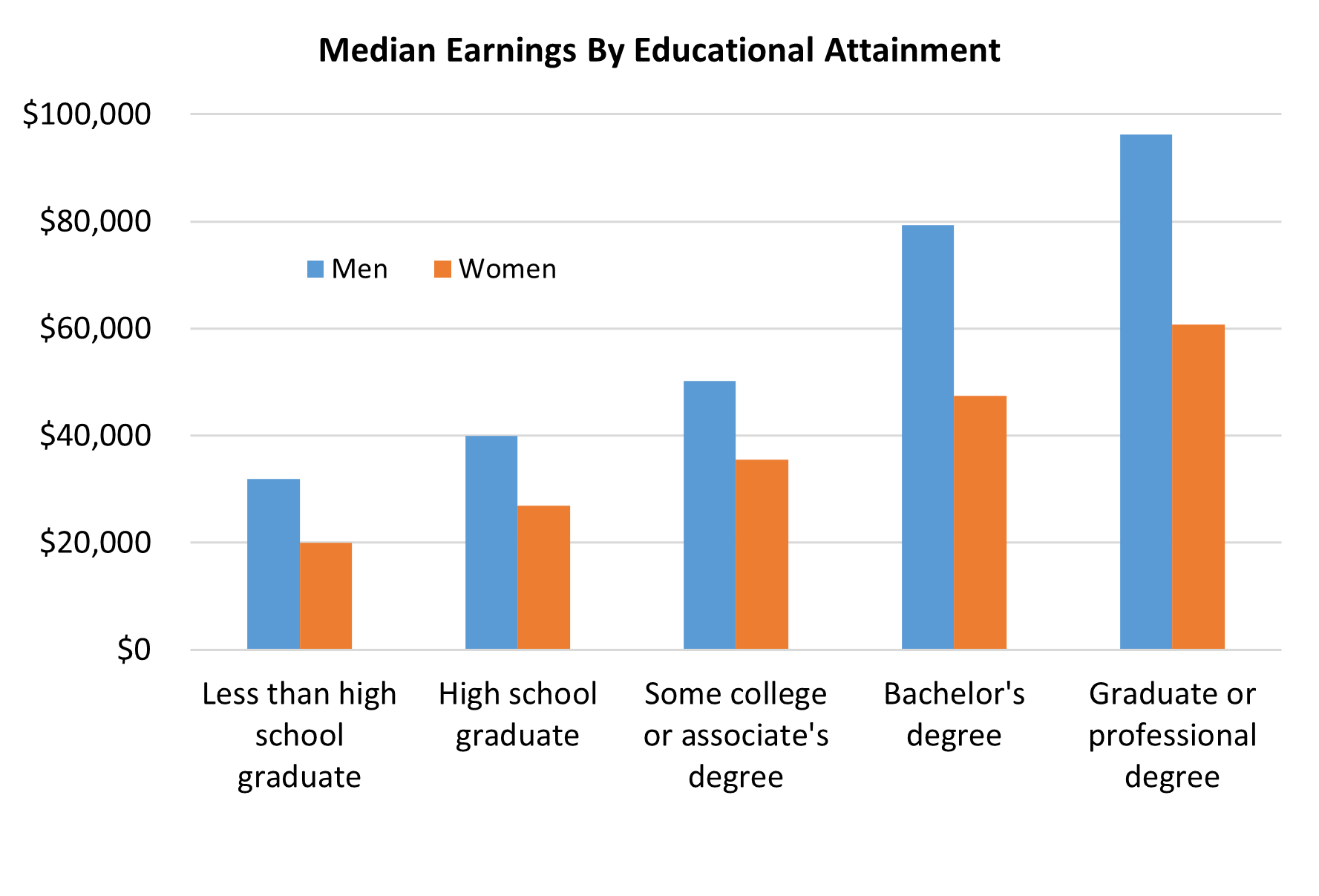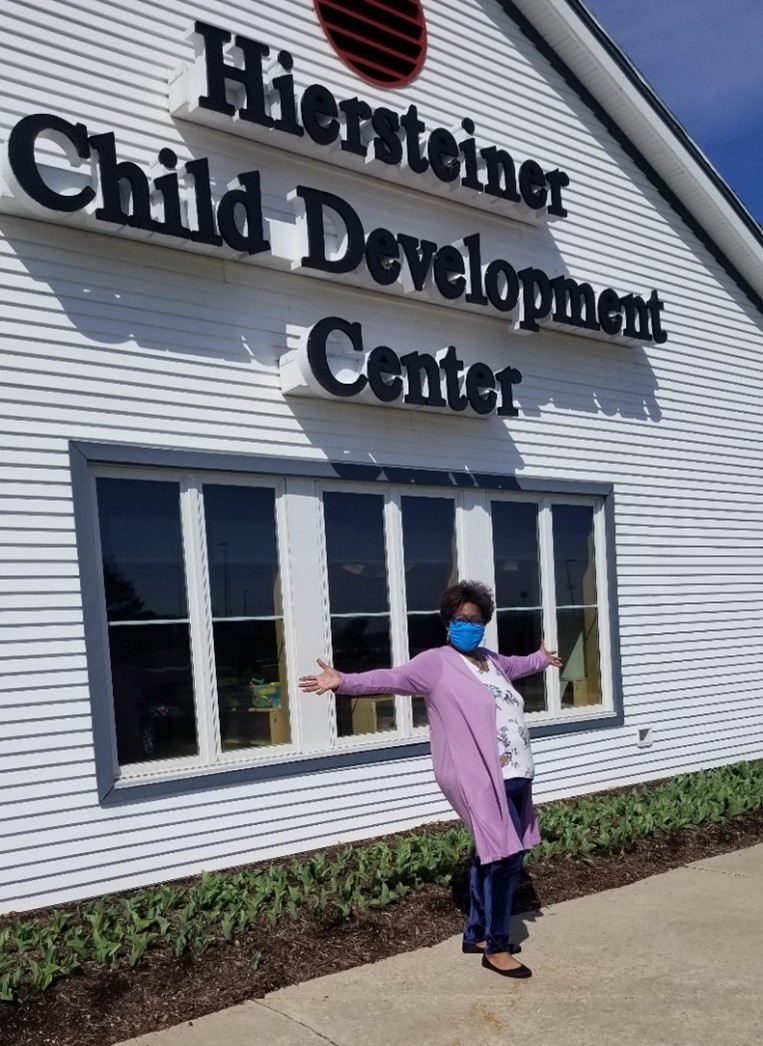Editorial - Women's History Month Reflections
 As we celebrated the role of women in society this past month, I took stock of my own experiences over the past thirty years as a professional primarily in the nonprofit sector. So many things have changed – or have they? Yesterday was Equal Pay Day, the number of months into the next year women need to work to equal in earnings what men earned the previous year. The Census Bureau notes this was the earliest date (three additional work months) the Equal Pay Day was reached in the 25 years the National Committee on Pay Equity has been marking the day. I celebrate the progress but mourn the fact we still need to track the disparity.
As we celebrated the role of women in society this past month, I took stock of my own experiences over the past thirty years as a professional primarily in the nonprofit sector. So many things have changed – or have they? Yesterday was Equal Pay Day, the number of months into the next year women need to work to equal in earnings what men earned the previous year. The Census Bureau notes this was the earliest date (three additional work months) the Equal Pay Day was reached in the 25 years the National Committee on Pay Equity has been marking the day. I celebrate the progress but mourn the fact we still need to track the disparity.
Several my colleagues are in the childcare phase of their lives and felt the disruption during the pandemic of this vital resource. Quality childcare is vital but comes at a price that now as in the past have many workers, primarily women, weighing the costs in determining if and how they can stay in the workforce. I still remember doing the math with my husband after the birth of our second child and realizing that our full year, full time childcare costs were roughly equal to my take home pay. As a society we still struggle with how to support childcare solutions that allow families to work and thrive. The price we pay includes the loss of many talented workers and/or increasing the fragility of a family’s ability to meet basic needs. In the U.S., the majority of women with children are in the workforce, making it imperative that we find solutions to this childcare dilemma.
An exciting change that the pandemic may have helped accelerate is the realization that there are ways many in the workforce can better balance work and family. Almost twenty-four years ago, I piloted telecommuting at my workplace as I struggled to be both the best parent and professional I could be. The recent necessity of remote working, which is possible for some but not all jobs, opens the opportunity to retain talented workers, often women, who strive to juggle competing demands.
Women at all stages of their lives have much to contribute. As I look at more years behind than ahead in my own work journey, I am thoughtful of how we create space and opportunities for our older workforce to continue sharing their talents as they move on to the next stage of life. How can their history help our future?
Julie K. Brewer
Executive Director, UCS
Economic Outcomes for Women in Johnson County
Working parents have all faced challenges balancing childcare and work-related responsibilities during COVID-19, but nationwide women were significantly more likely to exit the labor force compared to men. According to the U.S. Department of Labor, 2.5 million women have left the work force since the pandemic began, compared to 1.8 million men. In Johnson County, many women are represented in industries that have experienced the highest rates of unemployment: 4 in 5 healthcare support occupations and 4 in 5 personal care and service occupations are represented by women workers.
Labor force exits are expected to widen the earnings gap that already exists between men and women. Median annual earnings for women who work full time year-round is $51,871, compared to $71,789 for men. Learn more in our latest fact sheet.

Shawnee Woman Embodies Ideals of Women's History Month
 The hip pain had Carolyn Thomas in tears and praying to God — suffering alone in her apartment for a week — but eschewing emergency room treatment she could not afford as an uninsured fast-food worker.
The hip pain had Carolyn Thomas in tears and praying to God — suffering alone in her apartment for a week — but eschewing emergency room treatment she could not afford as an uninsured fast-food worker.
A gynecologist at the Health Partnership Clinic (HPC) treated her in 2015, when exhausted from a string of 10-hour shifts as a McDonald’s supervisor, she collapsed and sustained the cracked right hip. Her daughter finally came to her rescue after checking up on her.
She made it through that crisis, and endured many others, even before challenges presented by COVID-19. The childcare responsibilities Thomas has taken on for as many as eight kids, ranging in age from 2 to 13, intensified with virtual school. The children are the kids, and their siblings, of her son, who was murdered in 2013 in Kansas City, Kansas, just minutes after hanging up with his mom.
“I don’t want to do it,” she said of taking care of the children. “But there is no one else to do to it, so what do you do?”
The 54-year-old Shawnee resident is a reminder, at the close of Women’s History Month, that everyday folks embody the same tenacity of a Sojourner Truth or any other icon of civil rights, arts, or entertainment. Thomas chuckles at the social worker personality that won’t let her abandon those kids and tears up at the medical help she has received from the HPC.
Thomas grew up poor in KCK, raised by grandparents who would not hesitate to “shred a behind” for not following the rules. Her dad was sent to prison when she was three years old for robbery. The sting and loneliness of poverty, where even in adulthood she has scrounged for change to buy a loaf of bread, has bred empathy for the children under her care.
“Because I got a bad deal, I don’t have a problem easing the load for them, so they don’t have to suffer,” she said. “That is just my heart.”
Through it all, Thomas has earned two certifications and an associate degree from Johnson County Community College (JCCC). With a focus on medical and legal administration, Thomas is a part-time office assistant at the Hiersteiner Child Development Center on the JCCC campus. She also serves on the HPC board.
Health Partnership Clinic Offering ACA Enrollment Support
Health Partnership Clinic will take appointments to help people navigate the 2021 Special Enrollment period for individuals and families for Marketplace insurance coverage. The enrollment period runs now through August 15, to schedule an appointment call (913) 730-3653. English Flyer Spanish Flyer


